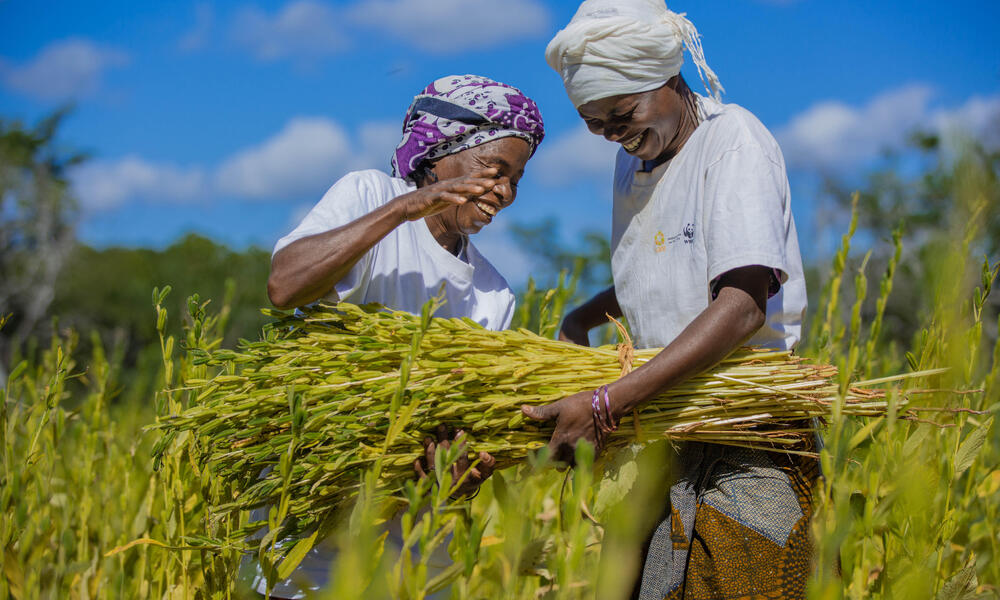For the communities of Mbondo and Majonanga, sustainable timber harvesting, a core component of participatory forest management, generated $31,306 in two years. That's almost 60 times the average Tanzanian farmer’s income over the same period. While a small portion of that money supports the district government’s forest management services, 95% is allocated to communities for them to spend on local priorities. These priorities have included building a preschool and securing health insurance for vulnerable elders.
In addition, business and marketing training equipped small-scale farmers with the skills to develop their own green trades, such as supplying drought-resistant seeds or selling sustainably produced honey, soaps, or clothing. Ultimately, women established 53% of the new small or medium-sized businesses supported by the project. This helped them to diversify their income sources, increasing their resilience in the face of climate change.
Through the project, communities "reduced hunger, improved infrastructure, and increased agricultural production,” said Raphael Ajetu, head of the Agriculture Department for the Nachingwea District. “Mbondo village... [became] the leader in sesame production in the district.”
A model of inclusive conservation
As someone who had only worked on social and community development projects previously, Katebalila started out unsure about the Nachingwea initiative. But in the end, “learning the conservation perspective shifted my thinking a lot. I came to the conclusion that conservation and development are inseparable,” he said. “In the past, there were ideas that conservation is all about law enforcement. It’s actually all about showing that conservation benefits communities. The project proved that.”

